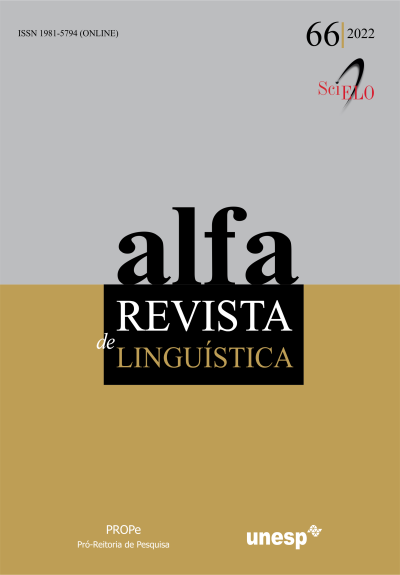Discursive and socioideological aspects in the poem “Prometheus”, by Goethe
a counterword to the Greek tragedy
DOI:
https://doi.org/10.1590/1981-5794-e15598Keywords:
Discursive and Socio-ideological Aspects, Prometheus, GoetheAbstract
This study aims to discuss discursive and socio-ideological aspects in the poem Prometheus, by Goethe, in the dialogical perspective of language, observing how it is configured as a counterword to the Greek tragedy Prometheus. For this, we found theoretical and methodological support in the thinking of Bakhtin (2006a, 2006b [1979]; 2010 [1930-34]), Medviédev (2016a, 2016b [1928]), Volóchinov (2017 [1929] and Benjamin (2018), who support the search. Through the dialogical approach, we delimited as the locus of study the poem entitled Prometheus, written by Goethe. From the moment we understand the Goethean poem as a counterword, it is possible to glimpse a change of conception in the construction of the character, resulting from discursive interactions between Prometheus and Zeus. Furthermore, there is a process of discontinuity in the mythical narrative, since Goethe’s perspective reveals dialogues with the German sociopolitical system between the 18th and 19th centuries. Therefore, the research is a qualitative-interpretative production. The results pointed to the fact that Goethe’s points of view, in his enunciation-paper (BAKHTIN, 2006d [1979]), differ from the tragic perspective visualized in the Myth of Prometheus, in which the character became a slave and was punished Eternal.
Downloads
Downloads
Published
How to Cite
Issue
Section
License
Copyright (c) 2022 ALFA: Revista de Linguística

This work is licensed under a Creative Commons Attribution 4.0 International License.
Manuscripts accepted for publication and published are property of Alfa: Revista de Linguística. It is forbidden the full or partial submission of the manuscript to any other journal. Authors are solely responsible for the article's content. Translation into another language without written permission from the Editor advised by the Editorial Board is prohibited.

